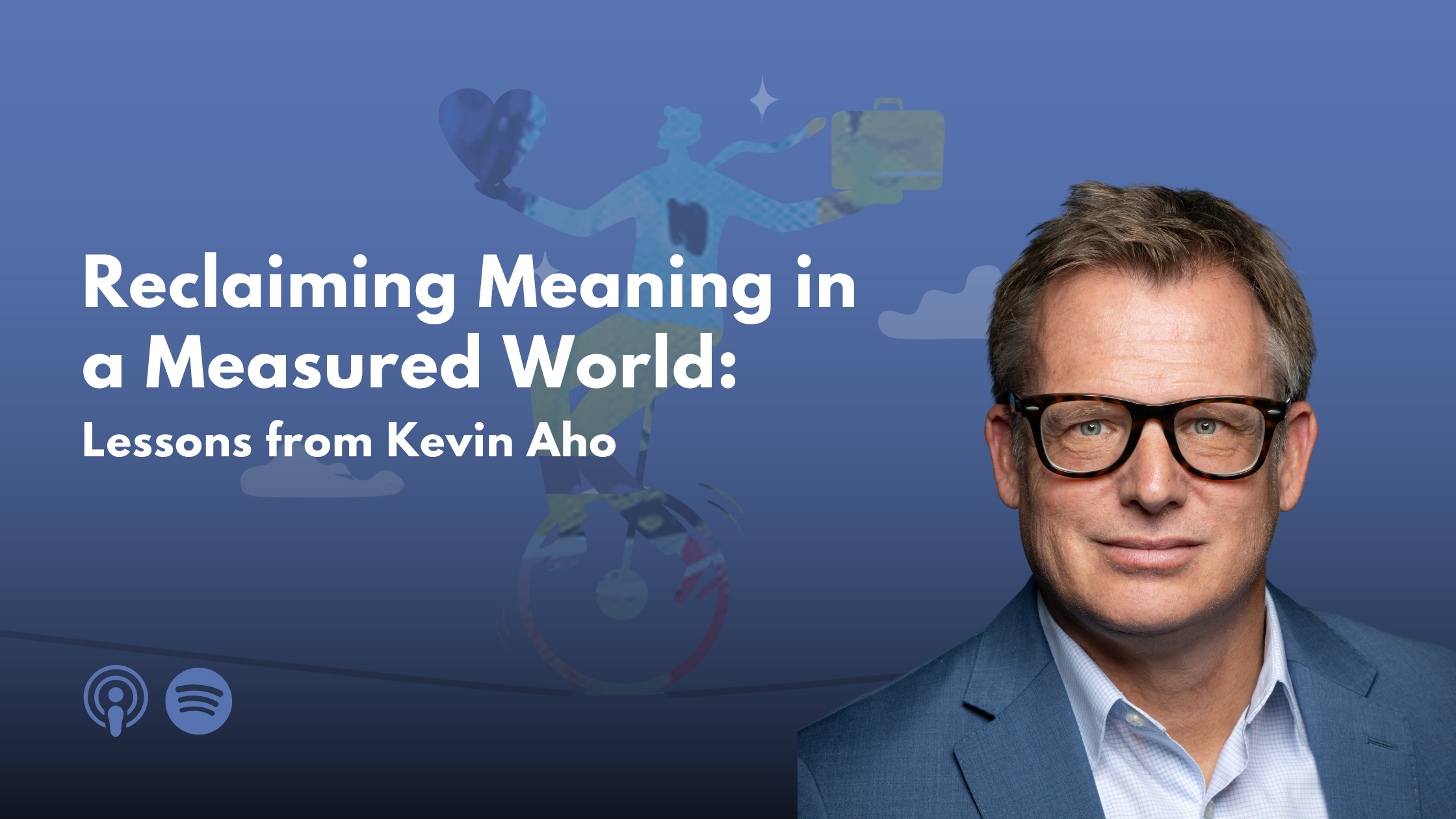On this episode of Meaningful Work Matters, Andrew speaks with Kevin Aho, Professor of Philosophy and Chair of the Department of Communication and Philosophy at Florida Gulf Coast University. Aho’s work spans existentialism, phenomenology, and the philosophy of health and illness, exploring what it means to live well, face suffering, and find purpose in a world defined by uncertainty.
In this conversation, Aho and Soren examine how neoliberal values have reshaped higher education, the wellness industry, and our collective understanding of meaning. They discuss what happens when human worth is reduced to performance, how wellness culture reflects a deeper emptiness, and why reclaiming community and relationality is essential to living and working with purpose.
The Neoliberal Reshaping of Meaning
In Aho’s view, higher education offers a revealing example of how neoliberal values have transformed our understanding of meaning. Universities, once spaces for curiosity and civic growth, are now driven by the logic of the marketplace. Faculty are measured by performance indicators, student outcomes, and vocational data, rather than the depth of learning or reflection they foster.
This shift has turned places of inquiry into systems of production.
As Aho explains, professors increasingly must justify their existence by proving the financial or career value of their disciplines. Fields such as philosophy, literature, and the arts, once central to understanding what it means to be human, are often the first to be cut.
Aho views this as part of a broader cultural trend: the idea that worth must always be earned, quantified, or monetized. The result is a narrowing of imagination. When we view education and work through the lens of efficiency, we lose the conditions that allow people to think freely, explore complexity, and cultivate meaning.
The “Empty Self” and the Rise of Wellness Culture
Aho draws on the work of social psychologist Philip Cushman, who coined the term “the empty self.” The concept describes a cultural condition in which people feel an inner void, a loss of belonging and purpose. Instead of filling that space with relationships and community, we are encouraged to consume - products, programs, and experiences that promise fulfillment but rarely deliver it.
The modern wellness industry reflects this dynamic.
Health and happiness are treated as personal responsibilities, while structural inequities and collective challenges are ignored. Wellness becomes something we purchase rather than something we nurture together.
Aho’s critique is not an attack on self-care, but a call to see it in context. When well-being becomes another individual project, it reinforces the illusion that we are independent and self-sufficient. True wellness, he suggests, begins when we recognize our interdependence and acknowledge that care must extend beyond the self.
Recovering Relationality and Community
Throughout the conversation, Aho returns to a simple yet profound idea: we become who we are through our relationships with others. The self, as he sees it, is not an isolated unit but a web of connections shaped by love, care, and shared experience.
In this light, the path to meaning does not require radical transformation or grand political action. It begins in everyday acts of community, such as creating art, growing a garden, sharing a meal, or teaching with empathy. These are the spaces where we rediscover belonging and rebuild a sense of common life.
For Aho, the work of philosophy is a way of paying attention to what it means to live well. It invites us to see that meaning is not something we find alone. It grows through participation, relationship, and care for the world around us.
Practical Reflections
Aho and Soren’s conversation offers real guidance for how we might approach our work and lives.
Reflect on how success is defined in your environment. What might it look like to expand those definitions to include care, curiosity, and connection?
Pay attention to the spaces where meaning emerges naturally. This might be through creative work, community involvement, or relationships that invite honesty and compassion.
Practice relational awareness. Instead of striving for self-improvement, focus on how your presence supports others and how their presence shapes you in return.
These small shifts resist the pull of busyness and productivity, making space for the slower, more human work of meaning-making.
Final Thoughts
Aho reminds us that meaning is not a concept to chase but a condition we create together.
In a culture that rewards speed and productivity, he offers a slower, more human alternative - one that begins with care, curiosity, and the willingness to see our lives as intertwined.
Through the ways we work, create, and connect, we each have the power to help rebuild the shared spaces where purpose and meaning take root in our lives and work.

